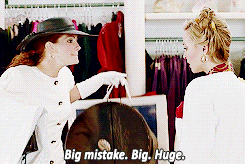Being neighborly can feel like a foreign concept or something that’s no longer in supply, especially in rural areas where people can feel the most need. There are also people who might want to contribute or have a small side gig but don’t want to turn it into a flat out, must-profit business. The people within the highlands of Scotland have a concept that caters to locals and tourists that supports the rural community and less-wealthy alike: honesty boxes.
The concept of honesty boxes is fairly simple. The honesty box is an unattended, unlocked box that can be filled with food or other goods for people to take what they want and leave some money behind in a cash box as thanks. Let’s say you have an apple tree in your yard and your family cannot eat them all before they spoil or you love to knit as a hobby to pass the time and you now just have piles of mittens lying around. You can set up an honesty box somewhere along your road and fill it up with your apples/mittens to sell. There are even some farms that are so small or rural that they cannot expand to do business with grocers, so they set up honesty boxes at the end of their roads with eggs, butter, or whatever produce they grow so the community can support them at a price that seems fair to everyone.
@haysfordays Reply to @tyelizabeth95 #honestybox #uktravel #americaninscotland #americanintheuk #haysfordays #visitscotland #scotland #fypシ
Some products have set prices, but many boxes are “pay what you can” on an honor system. It’s a way for people to share what they have with their community while getting some financial support for their produce, baked goods, jams, crafts, or whatever they wish to provide. No catches, no witnesses, no guards, no tricks. Just pick what you want and put your cash in the box. The people who fill up the box can collect their money at the end of each week, month, whenever. Some honesty boxes allow people to open the cash box so they can make change!
While people stealing from these honesty boxes isn’t unheard of, it’s not as common as one would think. Locals tend to be able to point out or root out the culprits if it was one of their own. If it were that common, logic would dictate that reports of thievery wouldn’t make big news when they happen.
The honesty box concept in Scotland isn’t limited to just products, but services as well. People can play rounds of golf or camp in certain areas by simply writing their name on a sign-in sheet along with whatever they paid in the cash box. There are even unfenced gardens that allow people to pick whatever vegetables, berries, or flowers they want in exchange for a contribution to the cash box.
While the term “honesty boxes” is Scottish in nature, the concept isn’t foreign. There are many comparable version of honesty boxes in the United States. Many rural farmers or people with hen houses in the U.S. have taken their surplus product and have created similar “pay what you can” egg stands, vegetable stands, and the like.
@itsambaslife Replying to @broskyding i do a pay what you can egg stand! #farmstand #eggcollecting #chickencoop
Similarly, in urban areas like Los Angeles, there are community refrigerators, literal plugged-in fridges on the sidewalk, that accept donations of various food items like produce, but also including unexpired frozen foods, snacks, and boxed meals to help feed folks with fresh food and frozen meals in case they have better access to a microwave rather than a stove. While the food is usually free in these fridges rather than a direct “pay what you can,” the trust comes in the form of a “take food, leave food” system along with getting some financial support from donors. They also offer digital methods of donation/payment through apps like Venmo and CashApp in case persons want to contribute financially but don’t have cash on hand.
@issocoollike_ Replying to @K #greenscreen there are definitely other ways to go about this per fridge group 🤑 #rvacommunityfridges #communityfridgetok #fridgequestions #freefoodforall #mutualaidtiktok
Whether it’s along country roads of Scotland, the back roads of New Hampshire farmland, or the hot paved sidewalks of Eagle Rock, California, it’s good to see how neighbors are supporting and feeding one another with trust as a backbone.



















 Female groundhog emerging from her burrow in late January.Stam Zervanos, Author provided
Female groundhog emerging from her burrow in late January.Stam Zervanos, Author provided This Maine groundhog had 17 torpor bouts where body temperature went up and down.Stam Zervanos, Author provided
This Maine groundhog had 17 torpor bouts where body temperature went up and down.Stam Zervanos, Author provided Male groundhog (on the right) greeting a female groundhog for the first time after they emerge from their separate burrows.Stam Zervanos, Author provided
Male groundhog (on the right) greeting a female groundhog for the first time after they emerge from their separate burrows.Stam Zervanos, Author provided
 A beluga whale frolicking in the oceanCanva
A beluga whale frolicking in the oceanCanva  A beluga whale pops up from the waterCanva
A beluga whale pops up from the waterCanva 
 A woman sits in a new car at a dealershipCanva
A woman sits in a new car at a dealershipCanva GIf from 'Pretty Woman' of Roberts saying "BIg mistake. Big. Huge." via
GIf from 'Pretty Woman' of Roberts saying "BIg mistake. Big. Huge." via 
 People voting. Photo credit:
People voting. Photo credit:  Young women rally. Photo credit:
Young women rally. Photo credit:  Tressie McMillan Cottom.Tressie McMillan Cottom/
Tressie McMillan Cottom.Tressie McMillan Cottom/ 
 Honorable J. Cedric Simpson at work in the courtroom.Image from
Honorable J. Cedric Simpson at work in the courtroom.Image from  A close up of Judge Simpson.Image from
A close up of Judge Simpson.Image from 
 Siblings engaging in a pillow fightCanva
Siblings engaging in a pillow fightCanva